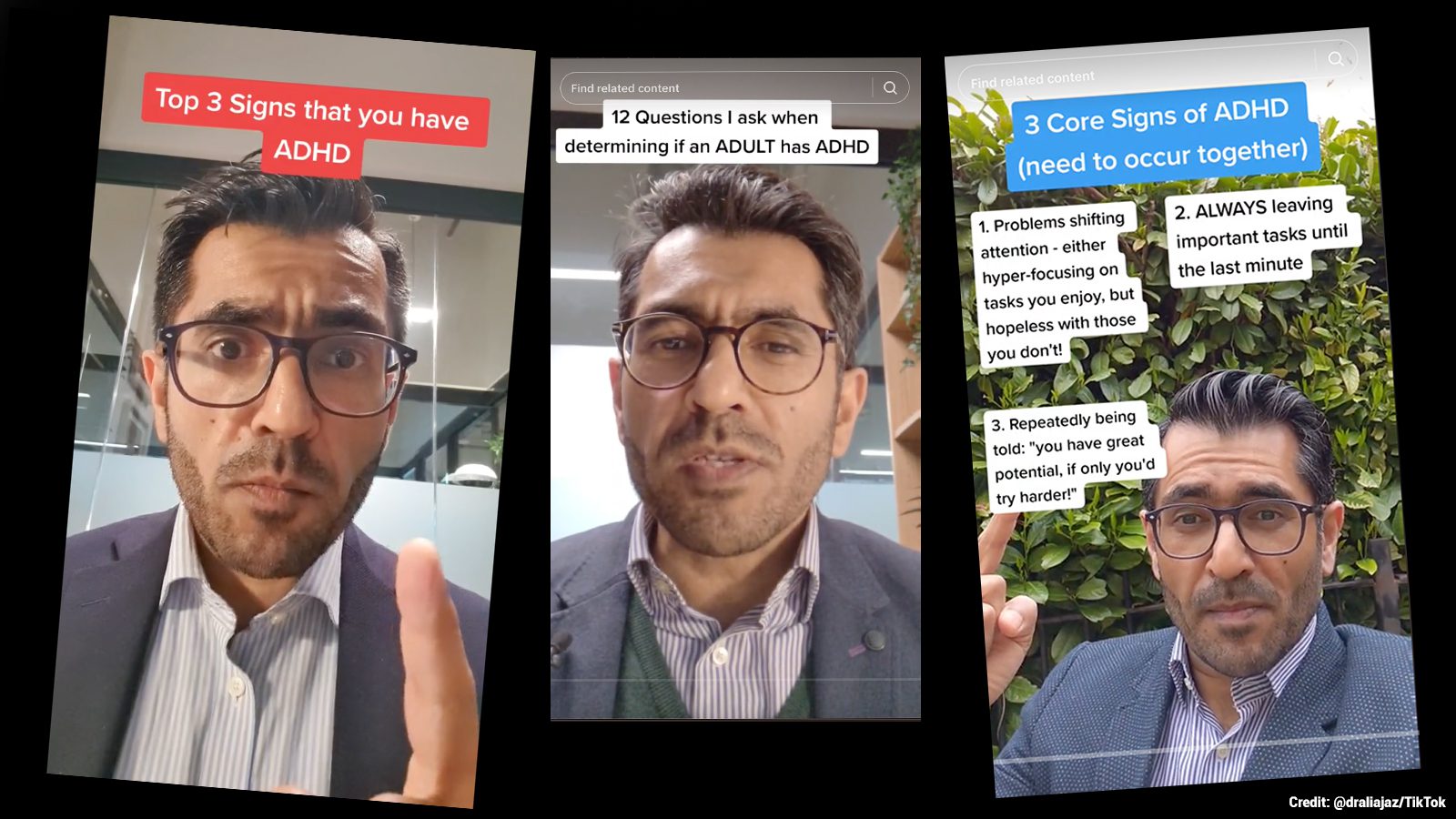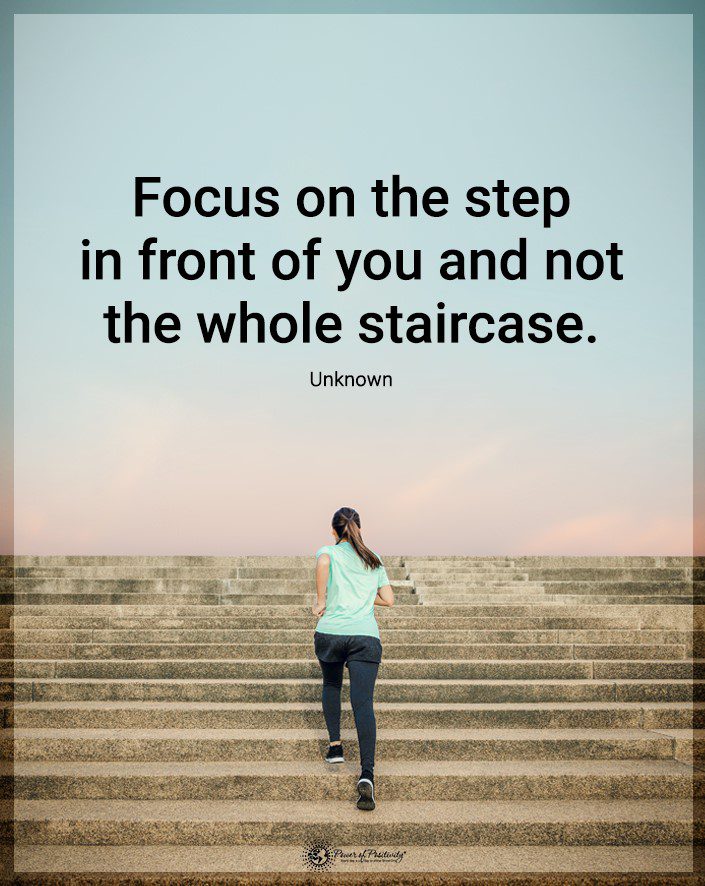The TikTok doc asks 12 very insightful questions to diagnose attention deficity hyperactivity disorder in adults.
In the digital age, social media platforms like TikTok are not just for entertainment but have also become a source of valuable information. A case in point is a popular doctor on TikTok who has recently shared a series of questions he uses to assess whether his adult patients might be dealing with Attention Deficit Hyperactivity Disorder (ADHD).
ADHD is a behavioral condition often associated with restlessness and difficulty concentrating. While typically diagnosed in children under the age of 12, there are instances where the condition goes unnoticed until adulthood. The symptoms of ADHD generally fall under two categories: inattentiveness and hyperactivity, and impulsiveness. The exact cause of ADHD remains unknown. However, research suggests a genetic link, as the condition often runs in families.
The TikTok doctor, a psychiatrist called Dr. Ali Ajaz, has gained attention for his health-related videos. One of his clips that has gone viral includes a list of 12 questions he uses to help determine if adults might have ADHD. However, he cautions that identifying with the questions does not automatically mean one has ADHD, but it could be a sign to seek professional advice.
What Questions May Reveal ADHD to the Doctor?
The questions Dr. Ajaz would ask his adult patients form part of a more comprehensive assessment process, including a report and input from people close to the person who may believe they have ADHD. These might be friends, family, and partners.
Here are the questions Dr. Ajaz asks:
1. “Do you have problems focusing on everyday tasks?”
This question can gauge the patient’s ability to focus on routine activities. Difficulty sustaining attention on tasks that may not be inherently interesting or that demand much mental effort is a hallmark symptom of ADHD. It could manifest in various ways, such as difficulty following instructions, trouble sticking to chores or duties, or a tendency to be easily sidetracked.
2. “Do you often zone out or lose a sense of time?”
This question helps the doctor identify whether the patient frequently experiences periods of being lost in thought or has a distorted perception of time. People with ADHD often report feeling like they are in a fog or daydreaming, especially during tasks requiring sustained mental effort. They may also have a poor sense of time, often underestimating how long a task will take, which can lead to issues with time management.
3. “Do you make careless mistakes at work or with assignments?”
This question helps the doctor assess the patient’s attention to detail and ability to focus on tasks. People with ADHD often struggle with tasks that require sustained mental effort, leading to careless mistakes. These could manifest as overlooking or missing details in work or school assignments, making errors in tasks even when they understand the instructions, or having difficulty with tasks that require organization or long-term concentration.
4. “Do you struggle to initiate tasks and leave things to the last minute?”
This question probes the patient’s ability to start tasks and manage their time effectively. Procrastination, or delaying or postponing tasks, is common in individuals with ADHD. They may have difficulty initiating tasks, particularly those that demand a lot of mental effort or are not immediately rewarding. That can lead to a pattern of putting off tasks until the last minute. Thus, it causes stress, anxiety, and poor performance.
5. “Do you struggle to complete one task at a time?”
This question can assess the patient’s ability to stay focused on a task until completion. Individuals with ADHD often exhibit what’s known as “task-switching,” where they jump from task to task without finishing any. This behavior stems from many reasons, such as finding the task tedious, being easily distracted, or feeling overwhelmed.
6. “Do you struggle to organize yourself?”
This question helps the doctor understand the patient’s organizational skills. People with ADHD often have difficulty organizing tasks and activities. That can manifest in various ways, such as trouble keeping track of tasks and deadlines, difficulty prioritizing tasks, or struggling with managing materials needed for a task or activity.
@draliajaz 12 Questions to help determine if adults have ADHD. #adhd #adhdcheck #adhdinwomen #adhdawareness #mentalhealthmatters #neurodivergent
7. “Do you ever get embarrassed at how untidy your bedroom, home, or workspace is?”
This question determines whether the patient struggles with maintaining an organized environment. People with ADHD often have difficulty with organization and tidiness. That can result in cluttered, disorganized spaces, which can cause feelings of embarrassment or stress.
8. “Do you lose essential items on a regular basis, e.g., mobile phone, keys, wallet?”
This question assesses the patient’s ability to keep track of items. Individuals with ADHD often have difficulty keeping track of their belongings due to issues with memory and organization. This organizational lack can lead to frequently misplaced items, such as keys, wallets, or phones, causing frustration and wasted time.
9. “Do you struggle to relax or unwind?”
This question helps the doctor understand if the patient has difficulty relaxing or calming their mind. Hyperactivity in ADHD is not just physical but can also be mental. People with ADHD often report feeling as though their mind is always “on,” leading to difficulty relaxing or unwinding, even during downtime.
10 “Do you have problems with sleeping because your mind doesn’t switch off?”
This question considers the patient’s sleep patterns and the quality of their rest. People with ADHD often struggle with sleeping issues, such as insomnia, due to their overactive minds. They may have difficulty falling asleep because they can’t stop their thoughts, or they may wake up frequently during the night. This lack of restful sleep can exacerbate ADHD symptoms and impact overall health and well-being.
11. “Do you struggle to wait your turn in queues or conversations?”
This question may help Dr. Ajaz determine if the patient exhibits signs of impulsivity, a common symptom of ADHD. Individuals with ADHD often struggle with patience and impulse control. They may find it difficult to wait their turn in conversations, often interrupting others, or they may become frustrated when they have to wait, such as in queues. This can lead to social difficulties and misunderstandings.
12. “Do you struggle to listen when spoken to directly?”
This question helps the doctor discover the patient’s listening skills and ability to maintain focus during conversations. People with ADHD often have difficulty maintaining focus, particularly during lengthy discussions or when the conversation is not of immediate interest to them. They may seem as though they are not listening when spoken to directly, or they may frequently ask for a recap of the information. That can impact their interpersonal relationships and performance in work or school environments.
Final Thoughts on ADHD and Seeking Help
ADHD can be managed with the right educational support for children and advice for parents and affected individuals. Notable figures like Olympic gymnast Simone Biles and Maroon 5 frontman Adam Levine have spoken openly about living with ADHD.
If you or your child exhibit symptoms similar to those listed above, it may be worth discussing them with a doctor. Seeking help is the first step to learning how to thrive with ADHD.

















